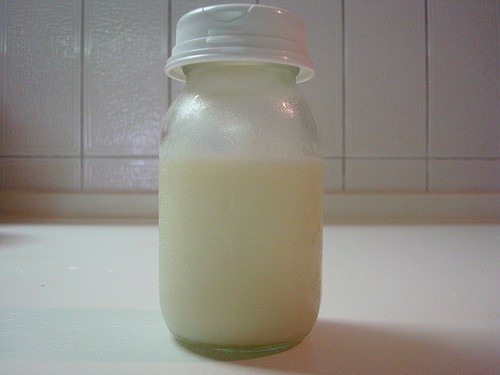
Purchasing breast milk on the net is unsafe, a new study reveals.
Media reports, first emerged in 2012 September, showed that mothers who need breast milk for their babies were depending largely on social networking sites like Facebook and other sources on the internet, than registered milk banks.
Highlighting the high risks involved in the trend, a team of researchers from the Nationwide Children's Hospital in the US found that breast milk purchased online is unhygienic and contained high levels of bacteria and viruses.
For the study, the researchers searched classified ads related to breast milk sale on the internet. They purchased 101 samples of breast milk from various public websites and compared them with 20 samples collected from milk banks.
Researchers noticed that the online samples and milk bank ones differed in quality. Online samples contained bacteria that cause many diseases. Poor handling of the samples, while collecting and storing, must have led to this occurrence, they said.
"We were surprised so many samples had such high bacterial counts and even fecal contamination in the milk, most likely from poor hand hygiene. We were also surprised a few samples contained salmonella," Dr. Sarah A. Keim, principal investigator in the Center for Biobehavioral Health, said in a news release. "Other harmful bacteria may have come from the use of either unclean containers or unsanitary breast milk pump parts."
Another major factor was the unhealthy practices involved in shipping the milk. Most of the sellers hardly bothered to preserve the milk with dry ice. "Major milk-sharing websites post a lot of guidance about milk collection, storage, shipping and provider screening. However, results from this study showed sellers do not often follow this advice because hygiene and shipping practices were often compromised," Dr. Keim, explained.
On the other hand, milk samples collected from milk banks contained fewer bacteria. The pasteurisation process used by the milk banks helps kill many harmful bacteria and the guidance provided by the milk banks during collection of the milk keeps the samples hygienic, the researchers added.
Concerned with their findings, the authors recommended mothers to depend on screened and registered milk bank services than online donors.
"Based on our research, it is not safe to buy breast milk online, and the Food and Drug Administration recommends against sharing milk obtained in that way. Recipients are not able to determine for sure if the milk has been tampered with, or contains harmful drugs or pharmaceuticals, or if the information the provider supplied about their health was truthful," Dr. Keim, added.
The study has been published in Pediatrics.
Similarly, in October last year, the professional Association of Pediatrics in Germany, had warned new moms against obtaining breast milk on social networking sites like Facebook. "Donors can be taking medicines or drugs, have infectious illnesses like AIDS or Hepatitis," Wolfram Hartmann, president of the association, said.
Facebook page of the Human Milk 4 Human Babies (HM4HB) Global Network, that has different pages for different areas in the US (like Ohio, Florida, Georgia, Oregon, Washington and Missouri ) and for other countries (Switzerland, Australia, UK, Sweden, South Africa and UAE) was under controversy after media reported the hidden risks involved in accepting breast milk from strangers.

















